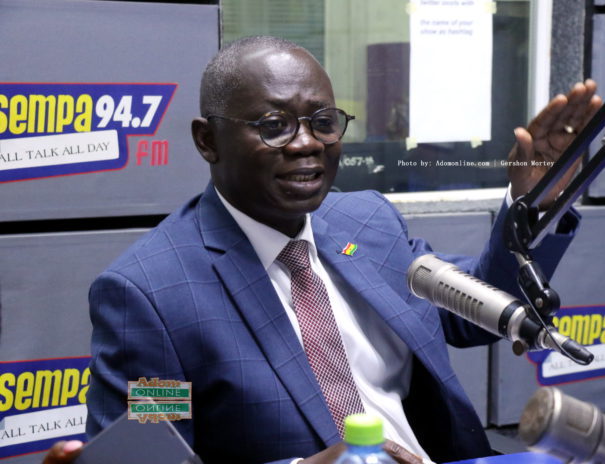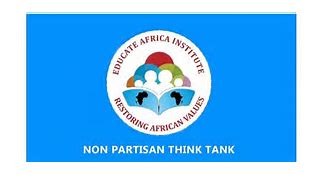
Education is a powerful driver of national development, and Ghana has made significant strides in expanding access to it. One of the most ambitious and transformative policies in recent years is the Free Senior High School (Free SHS) program, launched in 2017. This initiative aimed to eliminate cost barriers to secondary education, ensuring that every Ghanaian child, regardless of socioeconomic background, could access and complete SHS.
The policy has achieved remarkable milestones, including increased enrollment, improved gender parity, and greater opportunities for rural and underprivileged students. However, as with any large-scale public policy, implementation challenges have emerged. Overcrowded classrooms, strained infrastructure, and questions about quality have sparked debates about how the policy can evolve to meet the growing and diverse needs of students and educators.
To safeguard the progress made and ensure long-term success, enhancing the Free SHS policy is not only necessary but urgent. Below are key areas where policy improvements can be made to strengthen the foundation of secondary education in Ghana.
1. Infrastructure Development: Addressing Overcrowding and Accessibility
One of the unintended consequences of the Free SHS policy has been the rapid surge in student enrollment, which many schools were ill-equipped to handle. Overcrowded classrooms, inadequate dormitories, and limited sanitation facilities have become common complaints in many SHSs across the country.
To address this, government and stakeholders should prioritize massive investments in educational infrastructure. This includes:
-
Constructing additional classroom blocks and dormitories
-
Expanding science and computer laboratories
-
Providing adequate furniture, water, and sanitation facilities
-
Increasing accessibility for students with disabilities
Furthermore, a targeted infrastructure expansion in underserved rural areas will reduce pressure on urban schools and improve regional equity.
2. Teacher Recruitment, Training, and Welfare
The quality of education is directly tied to the quality of teachers. The increased enrollment under the Free SHS policy has outpaced the hiring of new teachers, resulting in high student-to-teacher ratios in many schools.
To enhance the policy, a long-term strategy should be adopted to:
-
Recruit more qualified teachers, particularly in science, mathematics, and technical subjects
-
Invest in ongoing professional development and pedagogical training
-
Improve teacher motivation through timely payment of salaries and allowances
-
Implement mentorship programs for newly posted teachers, especially in remote areas
A focus on teacher welfare is critical to ensuring commitment and reducing attrition, which in turn supports better learning outcomes.
3. Curriculum Reforms: Fostering Skills for the Future
While expanding access is vital, it must be complemented by relevant and forward-thinking curriculum content. The current SHS curriculum, though comprehensive, often lacks emphasis on practical skills needed for the modern economy.
Enhancements should include:
-
Strengthening Science, Technology, Engineering, and Mathematics (STEM) education
-
Introducing entrepreneurship, financial literacy, and digital skills
-
Expanding Technical and Vocational Education and Training (TVET) pathways
-
Encouraging project-based learning and critical thinking approaches
These reforms will ensure students are not only prepared for tertiary education but are also equipped to enter the job market or start their own enterprises.
4. Sustainable Financing: Securing the Future of Free SHS
The long-term sustainability of the Free SHS policy hinges on consistent and adequate funding. Currently, the program is financed largely through the national budget, including resources from the Ghana Education Trust Fund (GETFund) and the Annual Budget Funding Amount (ABFA) derived from oil revenues.
To ensure financial stability and program continuity, the government should:
-
Explore public-private partnerships to support infrastructure and technology needs
-
Encourage alumni associations and community contributions to support individual schools
-
Introduce targeted donor programs focused on specific regions or challenges
-
Improve financial transparency and accountability in resource allocation
A diversified and well-managed funding approach will safeguard the policy against economic shocks and political transitions.
5. Monitoring, Evaluation, and Data-Driven Decision-Making
A strong monitoring and evaluation (M&E) framework is essential to assess the effectiveness of the Free SHS policy. This includes tracking student performance, resource utilization, and the impact of interventions over time.
The Ministry of Education and the Ghana Education Service (GES) should:
-
Develop and maintain reliable databases on student demographics, progress, and outcomes
-
Conduct regular school inspections and learning assessments
-
Use data to inform policy adjustments and resource distribution
-
Engage independent evaluators and civil society in transparent reporting
Evidence-based decision-making will enable continuous improvement and foster greater public confidence in the policy.
6. Promoting Equity and Inclusion
While Free SHS has expanded access, disparities remain in terms of quality and inclusivity. Students in deprived districts, those with disabilities, and girls in certain regions still face significant barriers.
Policy enhancements should include:
-
Providing targeted support for girls’ education, including scholarships and mentorship
-
Ensuring schools are inclusive and accessible to students with physical and learning disabilities
-
Expanding the School Feeding Programme and transportation assistance in remote areas
-
Offering remedial and guidance services for at-risk students
An inclusive approach will ensure that Free SHS delivers on its promise of educational equity for all.
7. Community and Stakeholder Engagement
Effective implementation of Free SHS enhancements requires collaboration among all stakeholders—parents, educators, local authorities, NGOs, and the private sector.
The government should encourage greater community involvement through:
-
Regular townhall meetings and stakeholder consultations
-
Strengthening Parent-Teacher Associations (PTAs)
-
Involving local chiefs and opinion leaders in monitoring school performance
Community ownership of the policy will improve accountability and foster a shared commitment to educational excellence.
The Free SHS policy is one of the most impactful social interventions in Ghana’s history. It has unlocked opportunities for hundreds of thousands of young people who might otherwise have been left behind. However, to fulfill its full potential, the policy must evolve through thoughtful enhancements.
Addressing infrastructure deficits, investing in teachers, modernizing the curriculum, and ensuring sustainable financing are not just improvements—they are necessities. Moreover, putting equity, accountability, and community participation at the center of the policy will make Free SHS more inclusive, effective, and resilient.
As Ghana aspires to become a knowledge-driven economy, investing in quality secondary education is not optional—it is imperative. By enhancing the Free SHS policy today, Ghana is laying the foundation for a more educated, empowered, and prosperous future.
Source: Thepressradio.com| Ogyem Solomon





